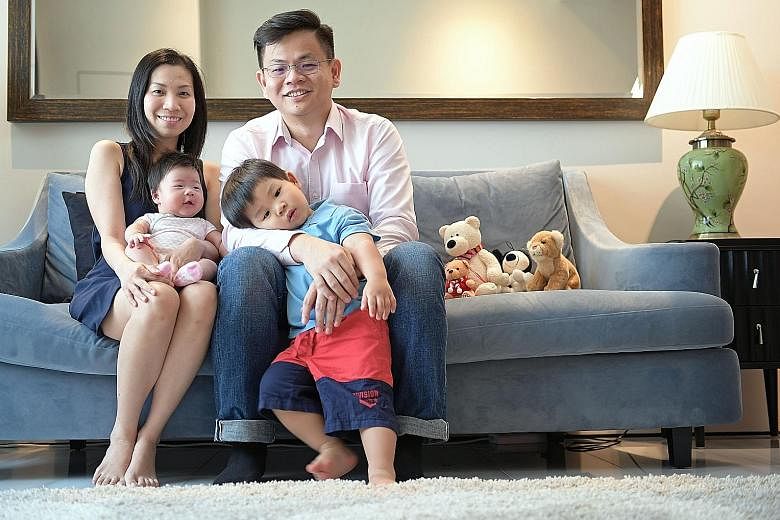It is rare to find a pregnant woman having cancer in Singapore.
The largest hospital for women and children here - KK Women's and Children's Hospital - has managed only a few such cases over the last few years.
These cases involve gynaecological and breast cancers.
Globally, pregnancy-associated cancer cases occur in about 1 in 1,000 pregnancies.
For colon cancer, as in the case of Ms Jen Wang, women have a one in 13,000 chance of being diagnosed with it while pregnant.
The rate of such pregnancy-associated cancer is considered to be on the rise as more women have children older, according to Cooper University Health Care.
How the cancer is managed and treated will depend on the stage of the cancer, the type of cancer, the trimester the cancer is diagnosed, as well as the wishes of the pregnant woman, said Dr Timothy Lim, head of the department of gynaecological oncology at KKH.
"Termination of pregnancy may be an option in the first two trimesters if the patient is diagnosed with cancer in its advanced stages and needs treatment urgently," he said.
Chemotherapy can be given from the second trimester if the mother decides to keep the baby. After the baby is born, the mother can then opt for surgery, chemotherapy or radiotherapy.
Patients are always counselled extensively by a team of doctors, said Dr Lim.
"We have had patients who have refused any treatment such as chemotherapy during pregnancy. Patients are well aware there is a risk of progression of cancer and risk of death in pregnancy.
"No matter which route our patients choose, we always respect their informed decision and support them in whatever way we can."
About cases in Singapore, Ms Wang said: "One oncologist told me most mothers choose to abort the baby, and in one case where the lady went ahead with chemotherapy, the baby self- aborted later due to the effects of the drugs."
Janice Tai


